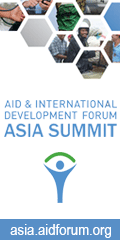 NGO News Report :: The Unnayan Onneshan (UO), an independent multidisciplinary think tank, in its August issue of monthly Bangladesh Economic Update 2015 reveals that declining rate of growth in total revenue collection in recent periods may bar the achievement of the country’s development targets.
NGO News Report :: The Unnayan Onneshan (UO), an independent multidisciplinary think tank, in its August issue of monthly Bangladesh Economic Update 2015 reveals that declining rate of growth in total revenue collection in recent periods may bar the achievement of the country’s development targets.
The research organisation finds that the rate of growth in revenue mobilisation has been on the decline since FY 2011-12. Actual mobilisation of total revenue grew by 23.3 percent in FY 2011-12, whereas the rate of growth decline in the subsequent years and stood at 11.8 and 9.4 percent in FY 2012-13 and FY 2013-14 respectively.
Of the total tax revenue, NBR tax revenue grew by 20.16 percent in FY 2011-12, 12.82 percent in FY 2012-13, and 7.83 percent in FY 2013-14 while Non-NBR tax revenue grew by 9.33 percent, 13.43 percent, and 11.84 percent respectively during the corresponding period.
In addition, in view of the fact that Bangladesh lags far behind other developing countries in terms of the total general government revenue as percentage of gross domestic product (GDP), the research organisation finds that the average total revenue for the period from 2010 to 2014 as percentage of GDP was 35.7 percent in advanced economies, 24.9 percent in emerging and developing Asia, 21.8 percent in Sub-Saharan Africa, 19.8 percent in ASEAN-5, 19.4 percent in India, 18.9 percent in Nepal, 13.7 percent in Pakistan, and 13.4 percent in Sri Lanka, whereas in Bangladesh, the average total government revenue as percentage of GDP for the corresponding period was only 10.8 percent.
In FY 2014-15, the target of revenue collection was set at Tk. 1829.5 billion which was later revised at Tk. 1633.7 billion. In the first nine months of FY 2014-15 (July’14 – March’15), the total collection of revenue stood at Tk. 1032.1 billion which is 56.4 percent and 63.2 percent of original and revised target respectively.
Referring to the latest data from the National Board of Revenue (NBR), the UO shows that the total collection of NBR-Tax stood at Tk. 1180.42 billion until May’15 of FY 2014-15 against the original target of total NBR-Tax of Tk. 1497.2 billion set in the budget of FY 2014-15 and the revised target of Tk. 1350.28 billion.
Taking account of the unsatisfactory collection of revenue from income tax which is proposed to be the largest source of revenue and is critical to the total revenue mobilisation, the think tank evinces that against the original target of Tk. 565.8 billion and the revised target of Tk. 483.44 billion in FY 2014-15, the actual collection of income tax stood at Tk. 377.40 billion until May’15, which is 66.7 percent and 78 percent of original and revised targets respectively.
On the contrary, the actual collection of Value Added Tax (VAT) at the local level vis-à-vis the target is satisfactory. Against the original target of Tk. 387.8 billion and the revised target of Tk. 324.08 billion in FY 2014-15, the actual collection stood at Tk. 297.03 billion until May’15. Unsatisfactory performance in collection of revenue from income tax compared to that from VAT implies higher tax burden on low income groups than high income ones, says the UO.
As regards the total non-NBR tax, the research organisation finds that against the revised target of Tk. 56.5 billion in the FY 2014-15, the actual collection of non-NBR tax stood at Tk. 33.7 billion until March’15 representing 59.65 percent of the revised target.
Pointing out the sluggish collection of non-tax revenue, the think tank further demonstrates that the actual collection of non-tax revenue stood at Tk. 128.2 billion until March’15 against the original target of Tk. 276.62 billion and the revised target of Tk. 226.9 billion for the FY 2014-15.
Referring to the higher interest payment due to deficit financing induced government borrowing from both domestic and foreign sources, the UO shows that against the target of total interest payment of Tk. 310.42 billion set in the budget of FY 2014-15, which is 20 percent of the total non-development expenditure of the fiscal year, the expenditure on interest payment reached Tk. 203.23 billion until March’15 constituting 24.8 percent of the corresponding period’s total non-development expenditure.
Higher interest payment results in the increase in total non-development expenditure every year causing the government to become unable to allocate adequately for development expenditure in the country, adds the think tank.
Urging for increasing strength and effectiveness of the tax administration, the UO suggests that the government must administer its fiscal management in a way that would broaden the taxpayers’ base on the one hand and ensure the provision of necessary services to the citizens in return for their payment of tax on the other.




